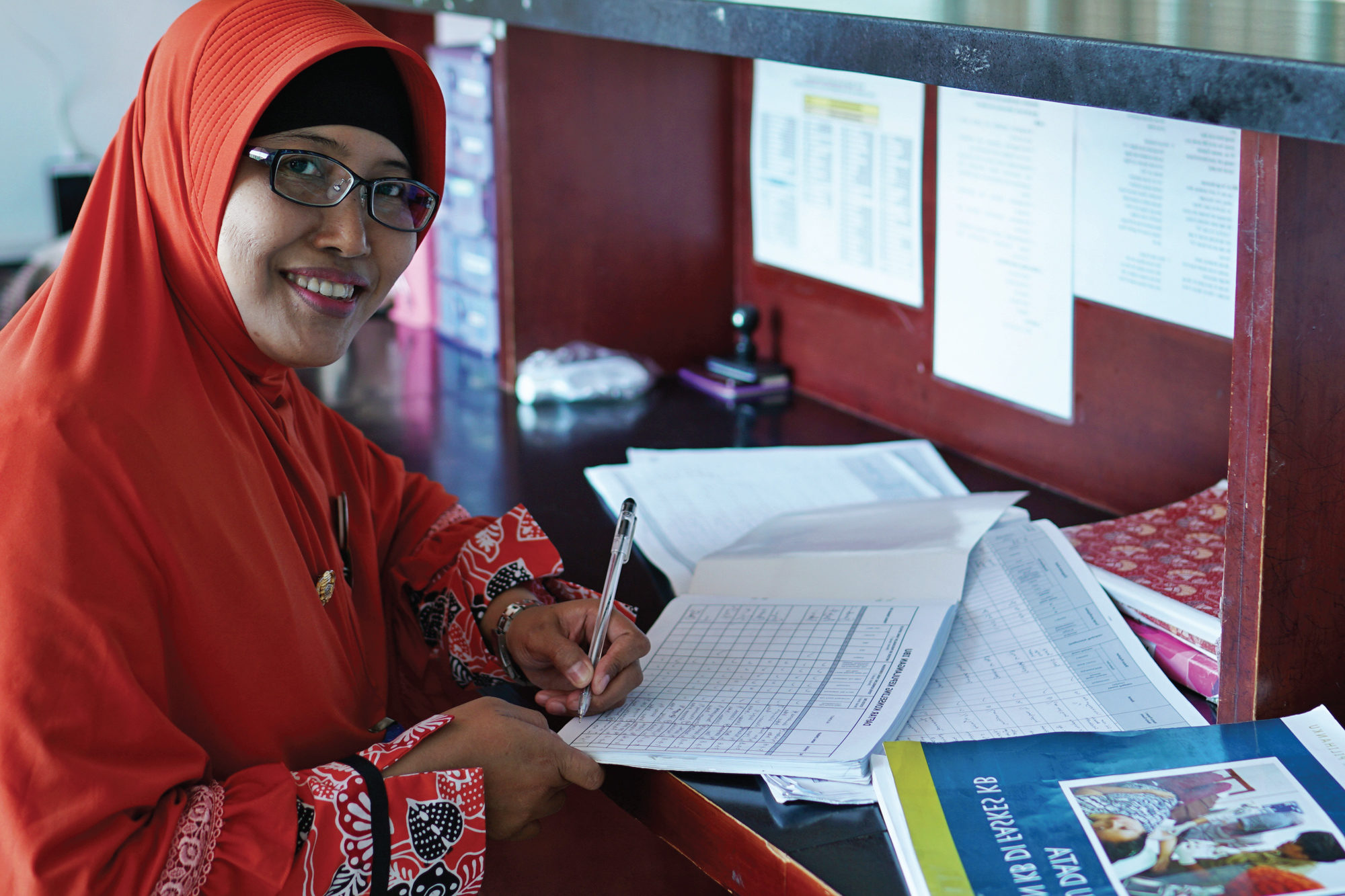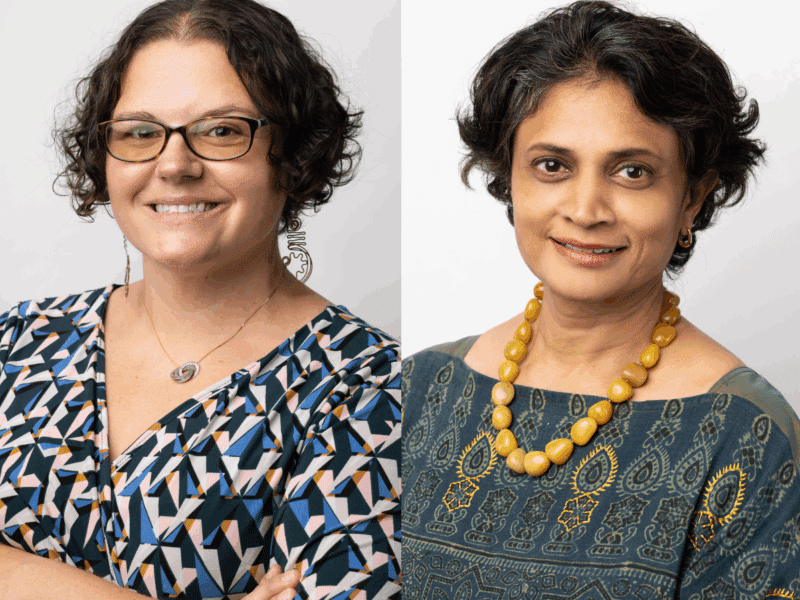Family planning clients in Indonesia who were counseled using a tablet-based application where providers helped steer them toward contraceptive methods most tied to their needs were far more likely to still be using that new method a year later, new Johns Hopkins Center for Communication Programs research suggests.
CCP, which leads the MyChoice project in Indonesia, found that efforts to increase the use of long-acting reversible contraception such as IUDs and implants were being stymied when women experienced side effects and asked providers to remove the devices after less than one year, sometimes stopping contraception entirely rather than switching to another method.
To counter this, the CCP team created an app-based version of the Balanced Counseling Strategy (BCS) for providers, enabling them to focus their conversations on methods that were most likely to meet the needs of each individual woman and help them understand the possibility of side effects and how to deal with them.
“The results were very clear: Clients who received the BCS counseling were far less likely to discontinue the method they chose,” says CCP’s Doug Storey, PhD, who led the research overall. “Not only did they stick with it, some of the clients switched methods instead of just stopping contraception altogether. It’s a real success story.”
Said CCP’s Yunita Wahyuningrum, who led the research in Indonesia: “Clients told us that they felt happy they received the information on methods that fit their needs, including learning more about side effects.”
In a mid-term MyChoice project survey, CCP researchers found that while health providers were promoting long-acting reversible contraceptive methods, they also found that clients were not getting information on method side effects and how to deal with them. National level data showed a high contraception discontinuation rate, with the main reason being problems with method side effect. So CCP determined there was a real need to improve family planning counseling.
The goal of BCS and its new digital algorithm is to narrow down options based on woman’s fertility goals, for example, the number of children she wants and how far she would like to space them out. Using the algorithm, the provider can now focus more closely on what will likely be the best option to meet each woman’s goals.
This allows the provider to give a clear and full explanation of possible side effects of each woman’s choice, so she is as prepared as possible for what is coming. The provider also supplements counseling with testimonials, videos and other educational materials.
BCS was initially developed by Population Council without digital tools. The MyChoice project introduced an early version of a BCS app for women who had just given birth at 44 public health facilities in Indonesia as a way to improve counseling and focus on the client’s needs. The proportion of women accepting a postpartum family planning method (PPFP) before discharge at those facilities increased from a monthly average of 10 percent to an average of more than 40 percent after the counseling began. Based on these findings, MyChoice decided to adapt the original PPFP app and use it more broadly for family planning counseling. This included expanding distribution of tablets to providers.
The latest research was conducted after the initiative was expanded to include all family planning counseling in more than 120 health centers, where 360 providers were trained in the version of BCS that included the digital tool. The researchers observed counseling sessions with 190 women in December 2018, interviewed providers and clients and followed up at three and 12 months after a method was chosen.
At the end of one year, 86 percent of the women who received the digitally enhanced version of BCS counseling chose a modern family planning method, with 37 percent of them choosing an implant or IUD. Those who received this enhanced BCS counseling were more than three times less likely to discontinue their chosen method in the first year compared to traditionally counseled (discontinuation rate of 8.2 percent for BCS vs. 29.2 percent)
Based on the results of the new study of the digitally enhanced version of BCS, BKKBN – Indonesia’s national family planning agency – decided to adopt the tool for family planning counseling nationwide in the future.
The main reason that women cited for sticking with their chosen method was that the choice was “suitable,” exactly what innovative digital counseling app aimed to achieve.
“When women know what to expect from their family planning choice, they are more likely to stick with it,” Storey says.
CCP’s MyChoice model is built on creating demand for modern contraception by improving family planning counseling, providing easy-to-use digital tools for consumers and providers and increasing access to a variety of contraceptive methods, especially the long-acting reversible contraceptives such as IUDs and implants that had declined in popularity in Indonesia in recent years.





